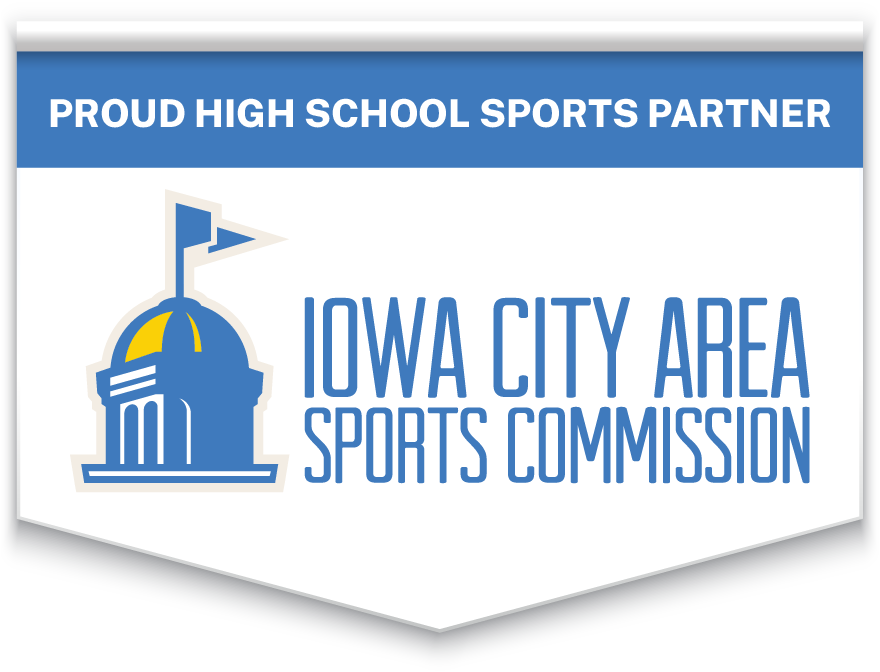116 3rd St SE
Cedar Rapids, Iowa 52401
Home / Sports / Iowa High School Sports
Youth sports are about fun, friendships
Nancy Justis, correspondent
Dec. 23, 2016 11:46 am
Editor's note: Nancy Justis is a former competitive swimmer and college sports information director. She is a partner with Justis Creative Communications.
I'll say it again. Wins and losses should not be the most important thing to focus on in youth sports.
I can't say it often enough and my 8-year-old grandson has reinforced it for me.
Jaden played his final flag football game recently. The Chiefs lost. They had a relatively successful season and he and his teammates had fun.
When the game was over, Jaden came over to the sidelines carrying his Gatorade and postgame snack to meet his family with tears in his eyes. We thought he was upset because they had lost their last game.
All of us tried to boost his spirits by pointing out he had played well, that he scored a touchdown, intercepted a pass, had a knockdown, grabbed a few flags.
He didn't want to hear it.
'I don't want this to be our last game,' he said, sobbing. 'I'm going to miss all my teammates. I won't get to see them again.'
Jaden wants to win as much as the next kid, but he was most upset because he had built friendships with the other members of his team.
His mom gave him a big hug and told him, 'Jaden, I promise you will see your teammates again. I have all their moms' phone numbers and we can call them so you can get together. I promise.'
With that, he stepped away so he could join his team for one more group picture. Still with tears in his eyes, but feeling a little bit better.
Memories made. That is what youth sports should be about.
The National Recreation and Park Association recently collaborated with Dr. Daniel F. Perkins, associate professor of family and youth resiliency and policy at Pennsylvania State, and Ann Michelle Daniels, assistant professor of family and youth development at South Dakota State, to feature 'Putting Youth Back Into Sports' as part of the Sports Illustrated GOOD SPORTS Activation Kit.
The materials have been adapted from a training curriculum created for extension educators and sports organizations. It contains handouts and other educational materials. It is available for sale from the South Dakota Cooperative Extension Service at http://sdces.sdstate.edu/youthinsports.
This Community Guide states 'everyone plays a role in making youth sports a positive community resource.
'Youth can make sports more positive by showing good sportsmanship and focusing on mastering skills.
'Parents can help make sports a positive experience by supporting the youth and the coach. This includes being an appropriate spectator, letting the coach be the coach, and encouraging kids to have fun.
'Coaches can help by promoting positive coach/parent and coach/child relationships. Coaches need to be able to communicate effectively, understand conflict resolution and remember when it comes to sports, kids' number one priority is having fun.'
Additional information in the Guide includes positive goals for an effective youth sports program:
• Ensure young players can experience success in learning the skills of the sport.
• Provide an environment that nurtures the youths' physical and emotional well-being.
• Provide an atmosphere in which young athletes can raise their self-worth.
• Maintain healthy attitudes that don't emphasize winning at all costs, but that emphasize personal improvement.
• Let the youth have fun.
• Spectators should 'applaud and cheer for everyone, not just your child or his or her team.' Spectators should 'keep cool' and avoid 'spectator rage'.
Drawing from a book sponsored by the National Research Council and the Institute of Medicine, Dr. Perkins identified 10 critical items in achieving a quality youth sports program.
• Physical and psychological safety.
• Appropriate structure. The program has clear rules, expectations and responsibilities of youth, parents, coaches, officials and sport organizers.
• Supportive relationships. Adults and youth are able to establish trusted connections.
• Opportunities to belong. The program fosters friendships and provides youth with a sense of a positive group experience.
• Positive social norms.
• Support for efficacy and mattering. The program provides youth the opportunity to be useful and to make a difference in their social worlds.
• Opportunities for skill building.
• Active learning.
• Opportunities for recognition. Players are acknowledged for their contributions.
• Integration of family, school and community efforts.
Jaden is in the early years of making lifelong friends through sports. This is just one reason why he shouldn't trade his sports experience for anything in the world.
• Let us know what you think. Send comments to njustis@cfu.net
Youth sports should be about friendships, fun and development, not about winning and losing, experts say. Here children run through a blocking drill before a scrimmage with the youth flag football program at Regina High School in Iowa City. (The Gazette)





 Daily Newsletters
Daily Newsletters